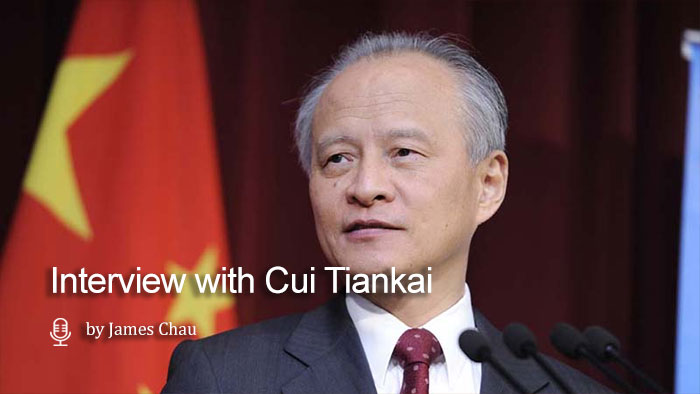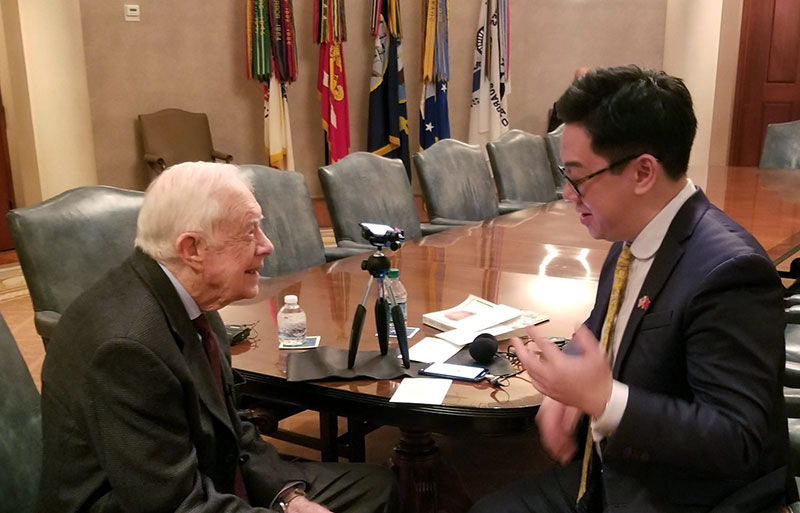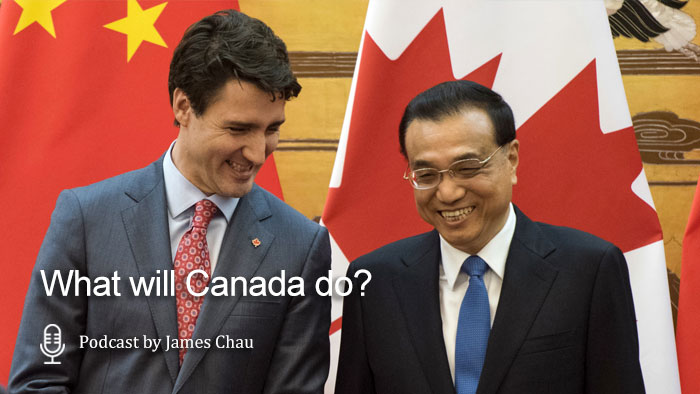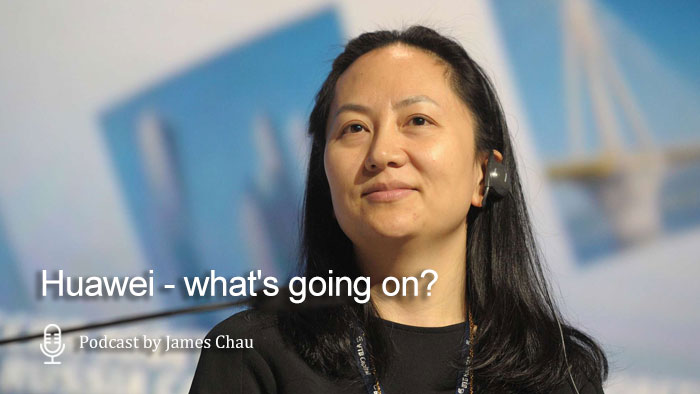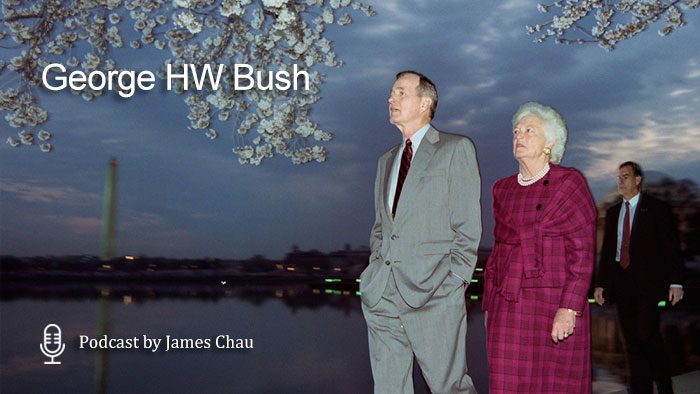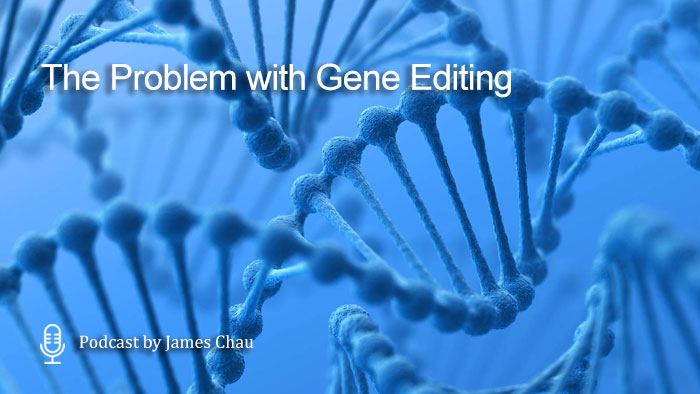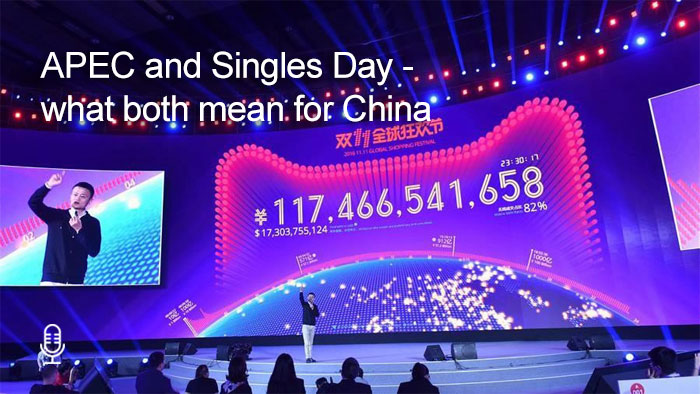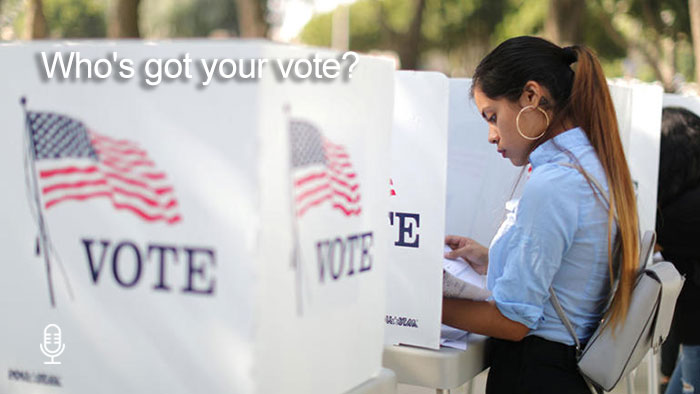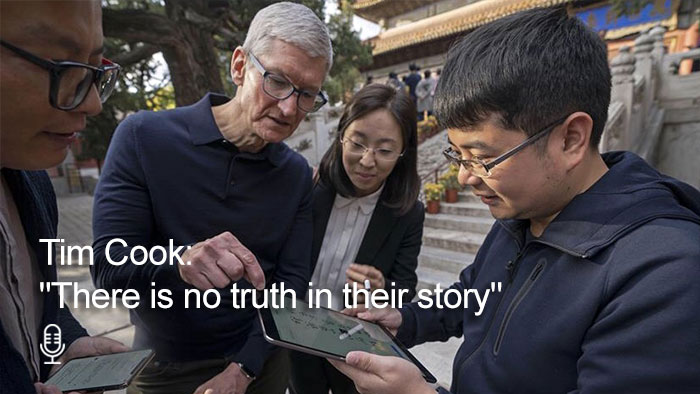Podcast by James Chau on Sep 05, 2025
Podcast by James Chau on Sep 05, 2025
Podcast by James Chau on Jan 22, 2019
January 18, 2019, Atlanta
Cui Tiankai is the Ambassador of the People’s Republic of China to the United States.
JAMES CHAU: I have many questions for you.
AMBASSADOR CUI: Please.
JC: Ambassador Cui, forty years ago, Deng Xiaoping and Jimmy Carter made a decision that changed the world: to establish diplomatic relations between China and United States, essentially merging the interests of over a billion people on different ends of the planet. Forty years later, do you think the two countries have achieved what the original architects had in mind?
AC: I think the answer is a clear “yes”. Both countries – and the world as a whole – have benefited from these four decades. The world has changed for the better. Think about history: back in the 1950’s and 1960’s, we had two “hot” wars in Asia. But since the so-called re-opening of America to China, or re-opening of China to America, Kissinger and Nixon's visits, and the normalization of relations, the Asia-Pacific region is now, on the whole, peaceful and stable. While there are still a couple of hot-spots remaining, it's under control and we're handling them. We are even working together on these issues, like the Korean peninsula. Economically, the Asia-Pacific region is very different from 40 years ago. Now it's one of the main powerhouses of the global economy. I think China and the United States can take a lot of credit, and we are very grateful to President Carter and Mr Deng Xiaoping, for taking that historic decision with great courage and vision.
JC: A few weeks after January 1st, 1979, Deng Xiaoping went to the United States, and said from the South Lawn of the White House: "The world today is far from tranquil. There are not only threats to peace, but the factors making for war are visibly growing." There has been no world war since 1979, and no American soldier has died on a battlefield in East Asia since 1979. Do you think that the U.S.-China relationship is a direct contributor to that peace?
AC: Yes, of course, especially for the Asia-Pacific region. Forty years ago, it was hard to imagine we could achieve overall peace and stability in the Asia-Pacific region, but now this is the reality. Sometimes people take it for granted.
JC: When Deng Xiaoping was in the United States, he visited the Johnson Space Center, where he climbed into the lunar rover and a spacecraft simulator. The vast majority in China were living in poverty in those days. Fast forward to a few days ago, and China became the first country in the world to explore the far side of the moon. With all the advances in technology and innovation in contemporary China, how do you think China can apply this innovation to benefit humanity?
AC: That's the purpose of China's efforts in developing science and technology. Of course, our goal is to bring a better life to the Chinese people, but we're also ready to contribute more to the progress of all humanity, including through science and technology. The United States is still the leading country in science and most of technology. China is still learning from the U.S. and others, and is trying to catch up, not to replace them, but to cooperate with them for the greater good of the entire mankind.
JC: Some people look at these innovations, the pictures from the far side of the moon, and they see that as a threat. They say that this science and technology is being used to advance China without pulling people up around it. What do you say to those people? You've grown up in China, you represent China, why is it so different to the China people talk about?
AC: The 1.4 billion Chinese people are working very hard for the modernization of the nation and to realize our ‘Two Centenaries’ goals. That includes the efforts of scientists. I don't think there's anybody in China who is planning any invasion of another country, so-called regime changes in another country, or enforcing our system or ideology on others. There is no such plan in China, and no one is doing this in China. Maybe there are people doing all this in other countries.
JC: By default, people are maybe applying their own internal fears to what they think China might be projecting?
AC: If we look at the history of the past half century, or since the end of the Second World War, it is quite clear which countries have invaded others most of the time, which countries have tried regime change all over the world, and which countries are fully engaged in the pursuit of peaceful development. I think that fact is clear.
JC: Which countries are that?
AC: We don't have to name them.
JC: The end of 1978 and the beginning of 1979 were a monumental few weeks for the world, although many people may not know it. On January 1st, 1979 two great nations decided to be real friends and to work together and just a couple weeks before that, Deng Xiaoping in China began the reform and opening up process that changed everything. Those two events are closely interlinked. Opening China's domestic policy meant opening China's outreach to the world as well. Is there an experience from that process that China can share with everybody as a lesson that could work for others?
AC: Actually, the historic changes in China started when Deng Xiaoping came back to power at the end of the Cultural Revolution, although not many people noticed it, beginning with Deng Xiaoping's call to emancipate the mind and seek truth from facts. China re-assessed the global situation and came to the conclusion that there's no imminent danger of a global war, so China should focus on economic development and its modernization drive. That's why we launched reform and opening up. We could not achieve that goal in isolation. We had to build better, stronger relations with our neighbors and with the major powers in the world, like the United States. If you look at the diplomatic schedule of Deng Xiaoping in those months, he visited our neighbors – Japan, Singapore, Malaysia – before the Third Plenary Session of the 11th CPC Central Committee, the conference where China took the decision for reform and opening up. At the same time, negotiations were going on between China and United States to normalize relations. The Joint Communique was published two days before the party plenum made the decision of reform and opening up. Shortly after that, in late January 1979, Deng Xiaoping came to the United States for his nine-day visit, which was unusually long but a very fruitful and very historic visit. So I think all this was part of a, if I may borrow the term, "grand strategy" for China to really launch its modernization drive to focus on economic development and contribute more to global peace and stability by starting a new relationship with the United States.
JC: You mention the nine-day visit to the United States. I spoke to President Carter, who said that when he extended the invitation, he received an answer in twenty four hours, which was an indicator of the quick but also strong decisions that Deng was able to make. I know you remember that period yourself because Deng was a sensation as the first Chinese leader in a long time that people had a chance to see for themselves. As an ordinary Chinese yourself at that time in Shanghai, what do you think Deng's visit to the United States did for young Chinese?
AC: A great deal. First of all, it opened up great opportunities for the young people in China to pursue their studies to work for a better future. Every time I meet with President Carter, he likes to tell me the story of how he got a call in the middle of the night from his son's advisor in Beijing, who said Deng Xiaoping wanted to send students to the United States. President Carter said they're absolutely welcome. So, this was a result of the decision to talk. I personally benefited from the decision some years later, when I came to the United States to pursue my graduate studies. Without Deng Xiaoping's visit and the decision he took with President Carter to open the doors for student exchange, I would not have had the opportunity to come here.
JC: You had an incredible start to your career, working at the United Nations to engage with the international community. What does globalization mean to you?
AC: Globalization is a fact of life. In today's world, people are more connected. It doesn't matter whether you’re in the U.S., China, or Africa, you can get connected instantly. The flow of information is greater and more powerful than ever before. The exchange of people, the flow of goods and services, and almost everything is globalizing. This is mainly driven by the advancement of science and technology and by economic imperatives. We can’t really reverse the trend. But we have to be very careful about how the benefits are shared equitably and how we can achieve an inclusive, open, and mutually beneficial process of globalization. This has been a challenge over the last few years for the international community.
JC: Mohammad Yunus, the pioneer of microfinance, has spoken about this as well, saying that China has managed to emulate the success of the traditional powers in its own economy, but wouldn't want to copy the failings – social inequity and the big gaps between the rich and the poor. China managed to find a solution for poverty, and if China can do it on a scale of hundreds of millions of people, surely that means it’s possible anywhere? What's a solution for inequity and the injustices that come out of being poor, not having a job, having to pull your children out of school? How do you solve that gap in society?
AC: It’s important to make sure that people have access to these opportunities. If poor kids have access to good education, they can change their lives, they can make their own contribution to society. For groups of people who are more vulnerable than other – people with disabilities, the elderly, etc. – it is our duty to take good care of them. The government has to adopt policies that will take care of the needs of these vulnerable people, so the benefits of globalization and of technological progress are more equitably shared.
JC: You've talked about the progress of technology and how we're all reliant on it, and how that's driving a new kind of globalization, and you've talked about Deng Xiaoping seeking the truth. Is it now very complex and difficult to establish the "truth" in a world of technology, where there's fake news and a rapid spread of information that can't always be controlled?
AC: People are still learning how to act and behave responsibly in this information age. Now, everybody is free to receive information or to send out information to try to influence others. There are cases of so-called "fake news" every now and then, and sometimes it's very difficult for individuals to distinguish it. Governments, institutions, and society need to work out rules and codes of conduct for people to behave responsibly in this information age.
JC: In a way that's decent and respectful of one another?
AC: Yes, yes.
JC: I want to return a bit now to the China-U.S. conversation. Jimmy Carter credits China and the U.S. for significantly securing global peace and for driving and generating global prosperity. But he says that the relationship is in jeopardy, and that if misperceptions and miscalculations are allowed to continue, these two countries could get in a "modern Cold War". Do you agree?
AC: There may be people out there with real intention to initiate a new Cold War between China and the United States. We have to guard against these attempts. But at the same time, the growing common interests between the two countries are clear. If we can really focus on the growing common interests and mutual needs between the two countries, I think it is quite clear that we should cooperate, rather than start a Cold War against each other.
JC: One of the important developments of the past year is the trade war between the two countries. Do you think that this event is going to permanently alter the 40-year relationship? Will China look elsewhere for other partners, or to expand its existing partnerships?
AC: China and the United States are the two largest economies in the world, and a trade war will hurt both countries and probably the global economy. The consequences of the trade disputes of the last couple years are already felt, not only in the two countries but globally. That's why there's widespread concern about the continuation of the dispute without a clear solution in sight. We should speed up our work to conclude the current round of consultations to find practical, effective, and mutually beneficial solutions to the existing issues. Of course if we solve the existing issues, new things might come up, but we have always handled these things in the spirit of mutual respect and mutual benefit.
JC: Obviously, you travel the world, and you take in different opinions. What would you want Americans to know about China and the Chinese people?
AC: I hope the American people can have better knowledge of the real China, not the China sometimes reported in the media here, not the China that some of the so-called “strategists” are writing about. That's not the real China. Some people are trying to demonize China. What they are talking about, what they are imposing on the American people, is not the reality in China. I hope, and I think part of my job here is, to facilitate better mutual understanding between the two countries.
JC: If someone wants to learn about China, and to acquire a serious understanding of the country, how do you suggest they go about it? What's the first step?
AC: There are a lot of good books to read. If they're interested in history, they could certainly start with some reading of Chinese history, that would certainly help. If they could actually visit China, and see for themselves, seeing is really believing. It would be most convincing for people to go there and see what the Chinese are doing every day, what their aspirations are, what the country's goals are. Go there and try to see what is happening, talk to the Chinese people, listen to them, see the evolving China story. A lot of misunderstanding will be gone.
JC: These are two countries that are very different in some aspects-- language, culture, their beginnings, their systems of governance. Do you think that there is the capacity in the future for America to say, “Yes, we have the number two economy not so far behind us these days, we can give it a bit of space and we can lead together”? Is there capacity to do that?
AC: I think the Chinese people have every right to seek a better life. Nobody can deprive us of this inalienable right. So, whether others are happy or not, China will continue to develop peacefully. The Chinese people will continue to work hard for a better life. But at the same time, China's development is not, and has not been, and will not be, at the expense of anybody else. China's development enables China to contribute more to global economic growth and global peace and stability. For instance, as of 2019, China is the second largest contributor to the United Nations’ regular budget and peace-keeping expenses. The United States is still the largest contributor, but we are taking up greater international responsibility. At the same time, I don't think it is possible for China and the United States to become identical at any time in the future. Why should we have a world where all countries are identical to each other? This would be a very dull world. We have to respect and make best use of the diversity. Because China has a different culture, a much longer history, a different language, this is a kind of attraction to many Americans. And America is also a fascinating place for many Chinese. This will motivate people of both countries to learn more about the other. With such mutual understanding, there will be a stronger friendship. I think this is great news for the world.
JC: I'd like to finish our conversation by returning to the two architects of the China-U.S. relationship. Ambassador, you've said multiple times that people shouldn't lose sight of why this relationship began, that it was in pursuit of global peace and that a certain element of global peace has been directly achieved because of these two countries. And Jimmy Carter said yesterday that this relationship, and the people that represent this relationship, should now go forward and create a new partnership that is based not just on mutual respect, but also based on love. Is that still possible?
AC: International relations, most of the time, is based on common interests. This is certainly the case for China and the United States. Of course, if people from different countries love each other, this is great, but you cannot expect everybody to do that. So, as relations between two great countries, I think it’s important to identify a growing common interest and base the relationship on that common interest.
JC: Ambassador Cui Tiankai, thank you very much.
AC: Thank you. It's a great pleasure talking to you.
Podcast by James Chau on Jan 21, 2019
The thirty-ninth President of the United States looks back on forty years of diplomatic relations with China, and providing solutions for mankind together.
By James Chau
Jimmy Carter invented the post-presidency president.
Since leaving the White House, he and Rosalynn Carter have extended their legacies as global champions of civil and human rights, by safeguarding free elections, building affordable housing, informing public policy on mental health, almost eradicating Guinea Worm Disease, and ensuring that inclusive prosperity and social justice are embedded in our collective conscience.
Indeed, so deep is the impact of their work today, that instead of standing as a cavernous monument in the long shadow of the presidential past, The Carter Center, and the extraordinary women and men who work for it, is a living exercise in faithful and moral leadership.
But I also remember Jimmy Carter for what he achieved in the Oval Office: as a co-architect, with Deng Xiaoping, of the modern birth of U.S.-China relations, and for leveraging the talent of over a billion members of this human family for the improvement of mankind.
When I first interviewed him last year on my 40th birthday at the house his parents built in Plains, Georgia, I left with a feeling that peace was possible. But, after our second interview on the 40th birthday of U.S.-China relations, I left with a shaken awakening that that peace is achieved if these two countries – their leaders and their people – follow the actions of the two men who began this story.
The following conversation was recorded at The Carter Center in Atlanta, Georgia, on January 18, 2019:
JAMES CHAU: I heard the story about you being born on the same day as China [October 1, 1924], but you are 25 years older?
PRESIDENT CARTER: (laughs) That’s right.
JC: That makes you a great civilization!
PC: Deng Xiaoping thought that was quite significant, that fate would let me have my birthday on the same day as the birthday of the People’s Republic of China.
JC: Fate has played a beautiful part in many areas of your life. You will forever be linked to the events of 1979, but your story with China began much earlier – as a boy, when you gave a nickel a week to help build schools and hospitals for Chinese children. What interested you even back then about a country on the other side of the world?
PC: I was a developed Christian, a Baptist, and our number one heroes in our lives were the women who went to China as missionaries for the Baptist convention. When they came home, we would be very excited if they would visit our church and tell us about China. The missionaries asked all of the young people, I was only five or six years old at the time, if we would give five cents a week that would go towards building schools and hospitals to help the Chinese children, so I was very proud of that. When Deng Xiaoping and I had our meeting at the banquet at the White House, he asked me if there was any one wish that I had. I said, “Well, I wish that we could resume that relationship that we used to have when I was a child with our missionaries and with Christianity.” He said, “What would you want specifically?” I told him that I would like to have freedom of worship in China and the distribution of bibles and return of American missionaries, and he said “Oh, that’s a surprise. I’ll let you know tomorrow morning.” The next morning he said, “I’ve thought about it a lot and we will change the law to guarantee freedom of worship in China. We’ll authorize the distribution of bibles – but no missionaries.” He said the missionaries that America sent over in my early boyhood looked upon themselves as better than the Chinese. They were arrogant and they also tried to change the Chinese culture. Since then, China’s become the number one growth country in Christianity, both in Catholicism and Protestantism. I think the largest bible distributor in the world is also in China, so I’ve been very proud of that.
JC: Did he call you at 4am, like he did when he wanted to discuss education exchanges?
PC: No, we met for breakfast as a matter of fact for this one, I think the night before he had had some supper with Dr. Brzezinski and his family.
JC: I went onto Google and typed-in ‘Jimmy Carter’ and ‘Deng Xiaoping’ and saw all of these pictures. What was unusual was the level of physical intimacy that the two of you shared. Pictures of you holding hands, clasping hands…
PC: And embracing. That’s right, it was a warm relationship between me and Deng Xiaoping, and also between Mrs. Deng Xiaoping and my wife, Rosalynn. Even between Deng Xiaoping and my daughter Amy who was then only about 12 years old. I think all over America, the reason that the new relationship between our two countries was accepted by the American people, which was quite a change by the way, was because of the effusive friendship that Deng Xiaoping inspired in his own personal character. He was full of fun and laughter. He was diminutive in stature, but he was a powerful and great man in his spirit and towards America, and towards peace in Asia.
JC: It’s hard to imagine that happening today in the current climate. Do you think that the best is already past for the China-U.S. relationship?
PC: Maybe the most intimate friendship has passed, but I think the political incidences of life show that the most important bilateral relationship on earth, to maintain peace and economic progress, is between the United States and China. I believe that when logic prevails on both sides, that people of the countries and leadership both will realize that this is such an important relationship and it must be preserved. I think the mutual respect, staying out of each other’s private affairs, and not trying to impose our way of life on each other will be honored in the future.
JC: You are unique in having achieved the greatest legacy of any former American president in history. Your Nobel Peace Prize in 2002 is a testament to that and recognized your work as a global moderator. How would you ‘moderate’ the U.S.-China relationship – not just the trade war, but fundamentally, the mindset?
PC: I think the best approach is to do what I had to do when I was President. We had an antagonistic relationship with Japan, and we had recently been at war, and much of our industry in America was moving towards Japan. Not only the manufacturing of clothing, shoes and shirts, but also automobiles and television sets, was moving from American manufacturers to Japanese manufacturers, they were selling it back to us at reasonable prices but to their advantage. We had a lot of Americans leftover from the war who despised Japan and so we formed a relationship where the Prime Minister of Japan and I appointed three, what we called “wise men”. They were distinguished statesmen on each side and those six people would meet in Tokyo, Hawai’i and Washington in a very quiet way. We never gave them any publicity, and they would advise me and the Prime Minister of Japan on the best ways to overcome differences that were inevitably going to arise. I would like to see something like that happen now between the United States and China. Just have three distinguished people on both sides who have a great interest in the preservation of peace and harmony to meet privately and to give their advice to reconcile leaders of both countries. I’m going to write a letter to President Trump and advise him to establish such a relationship, and I’m going to urge Xi Jinping to do the same thing.
JC: You are not just a historic leader, but a contemporary and current leader as well. The Carter Center is innovating a new approach to people, by bringing together the expertise of China and the U.S. to serve health needs for people in Africa, where the health burden is greatest. How is that going to work?
PC: We began these discussions at the forums in 2012 in Beijing, and we followed that up in 2013 here [The Carter Center] and we’ve been going back and forth each year, with a distinguished group of people to meet scholars and statesmen. I think we see it now, that China has emerged on the international scene in a very glorious, aggressive and effective way in dealing with small countries, like in Africa. The United States, particularly The Carter Center, has been doing this for almost the last 40 years. I think that’s an area where we can continue to explore ideas, where the United States and China, and the Chinese and Americans together, can assess the problems or needs for peace or for economic prosperity in the individual African countries, and to not compete with each other but to cooperate with each other. I’ve talked to many African leaders and they don’t want to get involved in an altercation choosing between the United States or China as the main benefactor, but if they knew they could deal with a combination of the United States and China working in harmony, that would be a great relief to some of them.
JC: What do you want young Americans to know about the China that you know? What do you want to tell young Chinese about your country?
PC: Yesterday I met with the international students at Emory University where I’ve taught now for 37 years, and I answered questions from about the 100 foreign students that assembled. About 30% of them were Chinese students. We have more Chinese students in America than we do from any other foreign country, and I think over the last 40 years we’ve had several million of those students come to America to learn about our country. We also have an increasing number going from here to China. Right now, we have about 50,000 American students in Chinese universities learning about the culture on both sides. I think that is a treasure chest of goodwill, of understanding, of comprehension, of the differences between our two countries. But this also shows the facets of both countries that we share: the desire for peace and economic prosperity and the wellbeing of our own citizens, as a first priority, but also the wellbeing of citizens around the world. So, I think that this student exchange is a vital aspect of the future, a guarantee that we in America and the Chinese will live in harmony and peace.
JC: You warn that a “modern Cold War” is not inconceivable, if misperceptions and miscalculations are allowed to continue. You served as U.S. President during the original Cold War: what parallels do you see?
PC: Back in those days, we were struggling against the Soviet Union as a potential military superpower. We were also competing with the Soviet Union in almost every small country around the world, and some of the major ones as well, for influence and for trade benefits and things like that. That’s what we’re trying to avoid at The Carter Center: competition between the United States and China in dealing with individual, foreign countries around the world – all around 200 of them. I would hope that we could see this as a way to bind America and China together, rather than to cause an uncomfortable competition that might lead to reversion into a Cold War. I don’t believe it’s going to happen. I think with a more rational president, on both sides, we’ll see the small groups in both countries that still remembers the Vietnam War and the Korean War where we were on opposite sides, like we had with Japan in World War Two. They’ll see the advantage in overcoming the few dissident, antagonistic groups, and let the vast majority of our people and rational leaders assure the future will see us as friends with mutual respect, not trying to impose our will onto other countries’ culture and political situations, and search aggressively for ways for us to cooperate as friends and help other countries.
JC: President Carter, thank you for this interview. Thank you and Mrs. Carter for transforming the world for the better.
PC: Thank you very much for a good interview. I hope to see you again in the future, it would be a real pleasure.
Podcast by James Chau on Dec 21, 2018
Justin Trudeau is maintaining a political distance, as Huawei executive Meng Wanzhou waits to hear whether she will be extradited to the US. Canada has allowed itself to get caught in the middle, while economist Jeffrey Sachs says the US has set a dangerous precedent. Also in this episode Chinese ride sharing app Didi attempts to make serious inroads in Mexico. (EP#29)
(FOCUS Podcast is a weekly global affairs podcast presented by James Chau, and brought to you by China-US Focus)
Podcast by James Chau on Dec 14, 2018
The plot thickens after the arrest - and release on bail - of Huawei CFO Meng Wanzhou. But Canada's Foreign Minister Chrystia Freeland says it's a matter for the courts, as two Canadians are now reported to have been detained by China. As Ottawa waits in the middle, what are the implications for the trade truce for Washington and Beijing, and relations between all three? Listen for more. (EP#28)
(FOCUS Podcast is a weekly global affairs podcast presented by James Chau, and brought to you by China-US Focus)
Podcast by James Chau on Dec 05, 2018
George HW Bush was the longest-lived president in U.S. history when he died on Friday. Listen to this episode for tributes from global leaders and what he meant to China. Also Xi Jinping and Donald Trump reach an important 90 day truce in the trade dispute, while Dr Tedros, the world's health chief, takes a close look at the ethics of gene-editing. (EP#27)
(FOCUS Podcast is a weekly global affairs podcast presented by James Chau, and brought to you by China-US Focus)
Podcast by James Chau on Nov 30, 2018
A scientist in China claims to be the first to gene edit a pair of twins. But his 'breakthrough' has triggered controversy - even condemnation - for the way in which it was carried out. But I'm also concerned by the door he's opened stigma and discrimination against people living with HIV. Professor Sharon Lewin, Director of the Doherty Institute, who's searching for the AIDS cure, tells me why she shares those worries.
(FOCUS Podcast is a weekly global affairs podcast presented by James Chau, and brought to you by China-US Focus)
Podcast by James Chau on Nov 23, 2018
The APEC leaders summit in Papua New Guinea exposed familiar divisions between the US and China and their approach to the 21st century, as globalization continues to come under threat. Plus, China's shoppers break the record on Jack Ma's '11.11 Singles Day'. (EP#25)
(At Large is a weekly global affairs podcast presented by James Chau, and brought to you by China-US Focus)
Podcast by James Chau on Nov 05, 2018
Tuesday is perhaps the most important midterm election in recent U.S. history. As the Republicans led by President Trump battle for seats, I ask whether anything will change - no matter who wins. Singapore's former prime minister Goh Chok Tong says China is handling its trade war with the U.S. correctly, and we remember Raymond Chow, the film producer who discovered Bruce Lee. (EP#24)
(At Large is a weekly global affairs podcast presented by James Chau, and brought to you by China-US Focus)
Podcast by James Chau on Nov 02, 2018
Apple CEO Tim Cook is asking Bloomberg to retract its claims that China used microchips to infiltrate U.S. businesses and government agencies. At the same time, President Obama has called out politicians who "make stuff up". Also on this podcast episode, Jimmy Carter and Tung Chee-hwa on China's reform anniversary, and a change in leadership for Ethiopia, Germany and Brazil.
(At Large is a weekly global affairs podcast presented by James Chau, and brought to you by China-US Focus)

